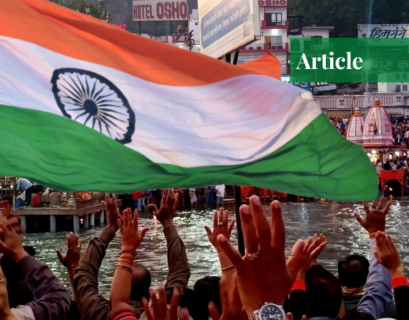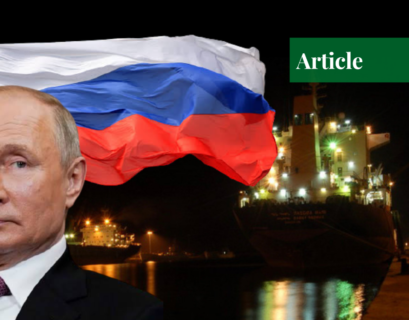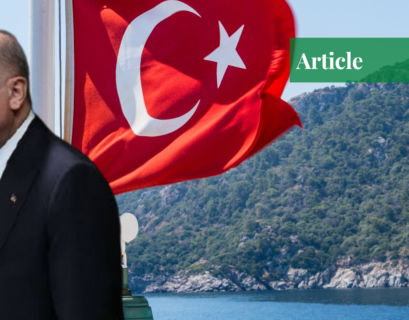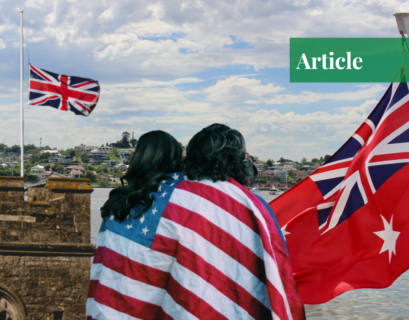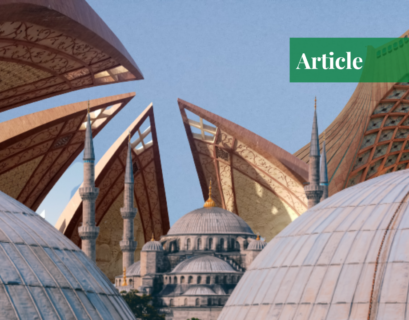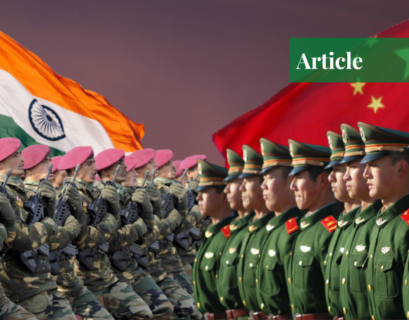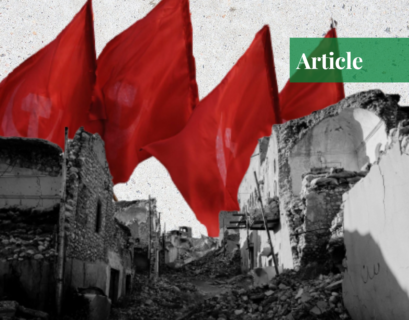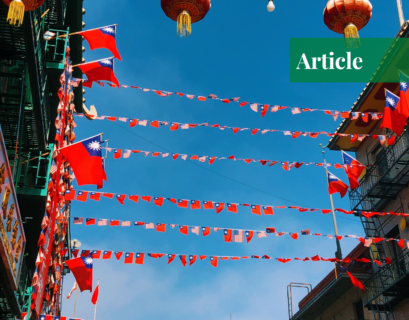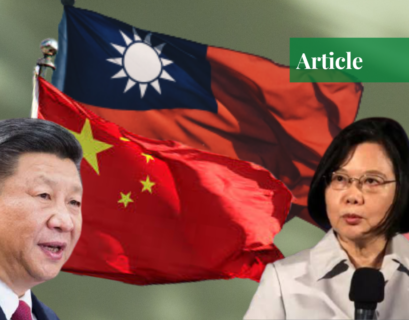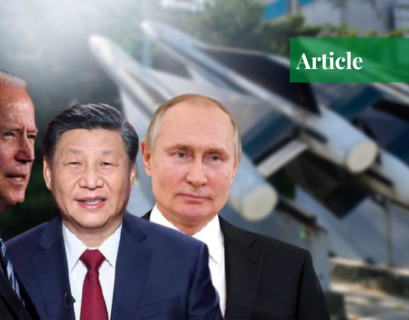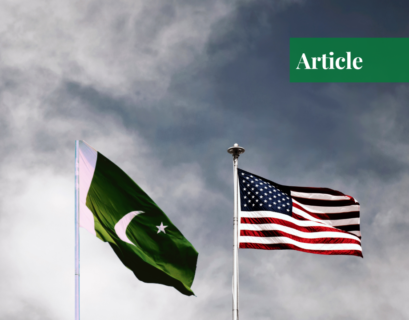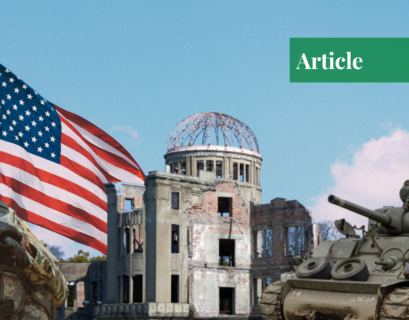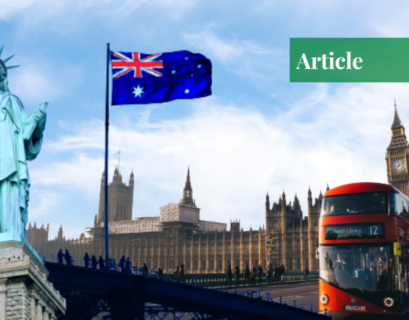The Unrelenting Indian Separatist Movements: From Khalistan to Nagaland
Today, India is facing several secessionist movements which represent the territorial, ethnic, and humanitarian issues within the state. The author, Muhammad Hamza Tanvir, notes that for decades, separatists in Nagaland, Manipur, Kashmir, Haryana, Arunachal Pradesh, and the Indian Punjab, have been demanding freedom from India. While some of these movements have been mitigated over the years, the mere existence of the secessionist element provides fault lines to China against the US ally. More often than not, India has used force to suppress these movements. In the case of Kashmir and Khalistan, in particular, India has committed grave human rights violations and killed thousands.
The Syrian Port of Tartus: A New Gateway for Russia
President Vladimir Putin, who sees Soviet collapse as an epic tragedy, is extremely enthusiastic about reviving Russia’s lost honour. The author, Ayesha Zafar, considers Russia’s 49-year lease on the Syrian port of Tartus an attempt to expand the scope of its military power and trade routes.
The New Canal Project of Istanbul & the Montreux Convention
Each year, around 48,000 vessels pass through Turkey’s Bosphorus Strait, making it the world’s busiest sea route. The Montreux Convention, under which Turkey regulates the strait, imposes several limitations on countries not bordering the Black Sea and prevents Turkey from taxing the vessels of the Black Sea littoral states. However, the author, Muhammad Hamza Tanvir, reveals that by constructing the Istanbul Canal, President Recep Tayyip Erdogan aims to overcome these restrictions, since the convention is inapplicable to the canal. While the Turkish government defends the canal project, the Turkish opposition, environmental experts, and Russia are concerned about its implications.
6 Reasons Why the AUKUS Security Pact Will Fail
AUKUS, the trilateral security pact between the US, the United Kingdom, and Australia, ensures the transfer of nuclear technology to Australia from the two major powers. In an effort to contain China’s influence in the Asia-Pacific, Australia will now be equipped with nuclear submarines. The author, Muhammad Aamir, argues that although this pact aims to intimidate China, it is not as useful as it seems and is more likely to harm Australia than benefit it. According to the author, there are six main reasons – including the timing of the pact – why AUKUS might be incapable of achieving its goals.
The Revival of the Islamabad-Tehran-Istanbul (ITI) Road Transport Corridor
The revival of the Islamabad-Tehran-Istanbul (ITI) corridor after 10 years will herald significant transit trade opportunities and cost-cutting in transportation. In fact, the ML-1 railway line, a major project under CPEC, will connect with the ITI corridor, thus increasing China’s regional influence.
Is the Global Economy Still Collapsing Due to the Pandemic?
The ongoing coronavirus pandemic has left no part of the world unharmed. Aside from its devastating impact on human life, COVID-19 has severely damaged the global economy. The author notes that the collapsing global economy has increased unemployment, food insecurity, and poverty, and threatened international trade and tourism. Due to the pandemic, the oil demand has reduced by 30% and the oil prices have reached an all-time low, causing the oil-producing states to suffer a 50-85% loss in oil revenues. According to the Asian Development Bank (ADB), this collapse is likely to cost the world economy $5.8 to $8.8 trillion. The author explains that for the recovery of the global economy, international organizations and varying countries (i.e. the US, China, Japan, and Pakistan) have introduced several initiatives and stimulus packages. However, for these measures to be successful, international cooperation is necessary.
The Border Dispute Between China and India: An Uncompromising Standoff
The author, Muhammad Hamza Tanvir, discusses the escalating border conflicts between India and China. Alongside highlighting the history of the conflict, he showcases how the Indian media has reported new confrontations between India and China over the area of Arunachal Pradesh, and how this is heightening tensions between the two countries again.
The Four Waves of Modern Terrorism
While state-perpetrated terrorism can be traced back to the Reign of Terror during the French Revolution, terrorism itself is rooted deep into human history. The author notes that the phenomenon of terrorism has undergone significant development since its usage by the Sicarii in the 1st century. The author relies on David Rapoport’s model of the four waves of modern terrorism to explain how the aims, motivation, rationale, and methods of achieving the aims have changed from the 1870s till now. She argues that while states have adopted measures to counter the current wave of religious fundamentalism, terrorism itself cannot be completely eradicated.
The History of Taiwan: From Dutch Colony to a Democratic “Country”
The island of Taiwan has a long history of colonization. From the 17th century till 1949, Taiwan had either been a colony of the Dutch, Spanish, or the Japanese, or a territory ruled by the Qing dynasty. The author, Muhammad Abdullah, notes that under Japanese rule, the island’s transportation, economic, and education sectors witnessed growth. However, after Japan surrendered in World War II, it ceded Taiwan to China. Since then, China has had significant influence over the matters of Taiwan. The author explains that despite China’s plans to reunify the Republic of China (Taiwan) and the People’s Republic of China, most of the Taiwanese population supports a sovereign, independent state over reunification.
Will Taiwan’s Conflict with China Lead to Reunification?
The tensions between Taiwan and China escalated since the beginning of this month when Chinese military jets entered the air defence zone of Taiwan for four consecutive days. The author, Alina Fayaz, claims that China has become more emphatic in the region, and that the invasion of Taiwan will turn out to be the biggest threat to world peace in a generation. China’s muscle-flexing in Taiwan through increased military over the last few months has raised an international concern as the fate of the island will reshape the order in the region because of its potential.
The Hypersonic Arms Race Between the US, China & Russia
The development of hypersonic weapons has made it difficult to distinguish between nuclear weapons and non-nuclear strategic weapons. Yet, it has made it clear that hypersonic weapons cannot be taken lightly. The strategic instability created by these weapons has triggered a hypersonic arms race between the US, China, and Russia. The author, Syed Alyaan Kazmi, notes that each state views the other two with suspicion and fears a pre-emptive strike, thus triggering a security dilemma. The existence of hypersonic weapons greatly influences the decision-making process due to their unpredictability. Fearing the destabilization of the arms race between the nuclear states, the author suggests the establishment of new multilateral agreements to limit the development and proliferation of hypersonic weapons.
Bosnia-Pakistan Relations: Built on a Strong Foundation
The cooperation between Pakistan and Bosnia and Herzegovina can be traced back to the Bosnian civil war which was responsible for 100,000 casualties. During the war, Pakistan supplied weapons to the Bosnians, despite the UN-imposed arms embargo, and airlifted refugees into its territory. The author notes that since then, the two states have cooperated in the education, defense, and economic sectors. In 2005, when Pakistan was struck with a devastating earthquake, Bosnia and Herzegovina supported Pakistan by assisting in the health and education sector. The author asserts that given their strong ties, the cooperation between the two states can extend to other sectors as well.
Pakistan and US Relations: A History of Betrayal
Despite being close allies during the Cold War, the author believes the relations between Pakistan and the United States to be rather strained — and almost at a breaking point. The domineering United States has always taken advantage of Pakistan’s prominent yet vulnerable position in the South Asia region clearly embittering Pakistan.
The United States of America: The Superpower of War Crimes, Terrorism, & Hypocrisy
When it comes to human rights and democracy, the United States of America tends to place itself on a high pedestal. The US’ false sense of righteousness and its tendency to ignore its own crimes while calling out other states has allowed it to remain on its high horse. The author, Sarmad Ishfaq, notes that the US has actively supported insurgencies and covert regime changes, initiated a nuclear arms race, and killed 22,000 civilians in airstrikes. No incident can better represent the US’ war crimes and hypocrisy than its bombing of Hiroshima and Nagasaki. Yet, despite it killing hundreds of thousands of people, the world turns a blind eye to America’s transgressions.
The AUKUS Pact and Its Impact on Regional & Global Politics
The author, Muhammad Hamza Tanvir, intends to apprise the readers of the AUKUS pact – a trilateral security agreement between Australia, the United Kingdom, and the United States – and the impact it has on Sino-Australian relations. This article also examines what this pact would mean for the Southeast Asian region while analyzing the impacts of this deal on ASEAN, QUAD, and NATO.
The Interim Taliban Government in Afghanistan: Will It Be Internationally Recognized?
The Taliban’s announcement of an interim government in Afghanistan was not a surprise to the international community. With no female—and hardly any ethnic—representation, the interim government will most certainly not get instant recognition.
The author, Mr. Muhammad Abubaker, also underscores the humanitarian crisis brewing in Afghanistan.
